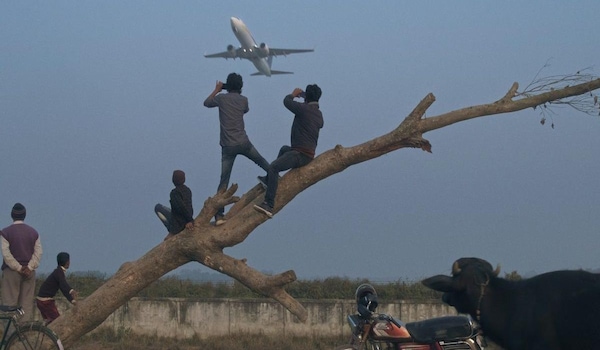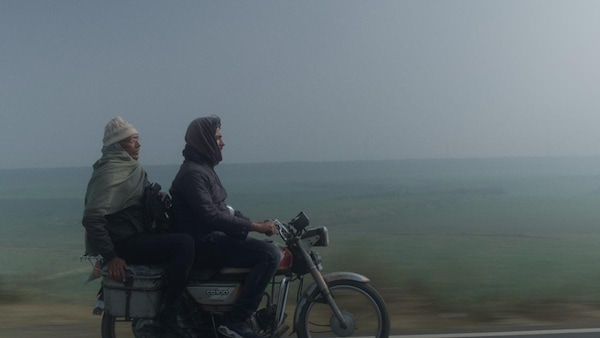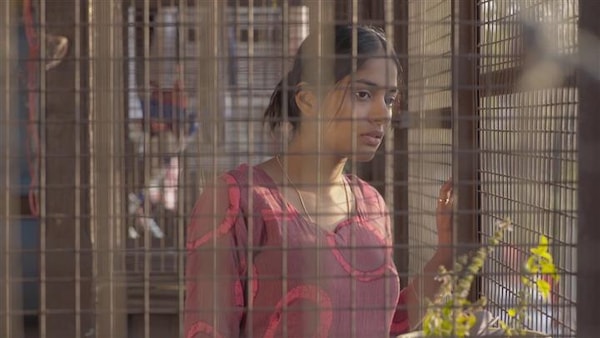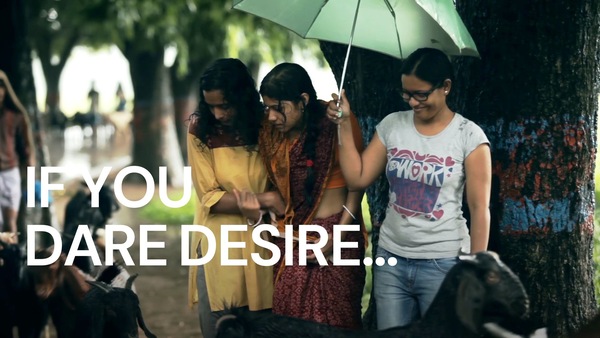Siddharth Chauhan to Anamika Haksar: India is brimming with nuanced, independent filmmakers
With The Elephant Whisperers bagging an Oscar and All That Breathes as a nominee, it’s time to turn the spotlight on independent filmmaking

Last Updated: 03.28 PM, Mar 19, 2023
India made history at the 95th Academy Awards by bagging two Oscars. While RRR’s Naatu Naatu won the ‘Best Original Song’ award, The Elephant Whisperers, directed by Kartiki Gonsalves, was honoured with the ‘Best Documentary Short Film’ award. The 41-minute film also happens to be the first Indian production to win an Oscar. This brings the focus back to the potential of the country’s independent filmmakers. Karitiki’s directorial debut explores the tentative bond between Raghu, an orphaned baby elephant, and his caretakers - Bomman and Bellie, a village couple who belong to Tamil Nadu’s Kattunayakan community.
Meanwhile, although Shaunak Sen’s moving documentary All That Breathes lost to Daniel Roher’s Navalny, it’s quite an honour in itself to be nominated for Oscars, isn’t it? All That Breathes is an inspiring story about two siblings - Mohammad Saud and Nadeem Shehzad - who dedicate their lives to treating and rescuing injured birds in Delhi. The critically acclaimed documentary has won awards at the Sundance and Cannes.
No dramatic monologues, no item numbers and no star-studded cast - yet these independent films have managed to gather worldwide fame. Narratives inspired by real life, nuanced storytelling, raw talent and unique independent voices are the secrets to the success of films like The Elephant Whisperers and All that Breathes. There are many other films - like Pushpendra Singh’s The Shepherdess and the Seven Songs and Lajwanti, Sanal Kumar Sasidharan Sexy Durga, Payal Kapadia A Night of Knowing Nothing and Amit Dutta’S Bat Like Devil Chaser with a Top Hat - that have made a mark in the realm of meaningful cinema. Thus to celebrate the spirit of independent filmmaking, let’s take a closer look at some of the works created by directors like Siddharth Chauhan, Achal Mishra, Anamika Haksar, Faraz Ali and Debalina Majumder in recent years. New voices like these enjoy a different world of their own, perfected by tragic yet heartwarming stories that bring you closer to your roots.
Achal Mishra’s Dhuin

Achal Mihsra’s film, Dhuin (2022), is a heartwarming tale of Pankaj (Abhinav Jha), a theatre artist from Darbhanga. He aspires to make it big in Mumbai, but is bound by familial and financial constraints. Dhuin, available to watch on MUBI, was inspired by an incident narrated by one of the actors in Achal’s debut film, Gamak Ghar (2019), that showcases a family that reunites in their ancestral home to celebrate a new birth. The film won the Manish Acharya Award for New Voices in Indian Cinema at the Jio MAMI Mumbai Film Festival 2019. Achal’s storytelling follows a theme of contemplation, inner turmoil and a sense of being out of place.
Siddharth Chauhan’s Amar Colony

Released in 2022, Amar Colony narrates the tale of three women who live a lonely life in Shimla. The film explores the effects of isolation and alienation on people, who are caught in a physical and emotional limbo, which seems to get worse as things take an absurdist turn. The film premiered and won the Special Jury Prize at the 26th Tallinn Black Nights Film Festival. Siddharth also bagged the ‘Best Debutant Director’ award at the 27th International Film Festival of Kerala. He made his debut with a short film, titled Boys Don’t Wear Nailpolish! (2015), and later went on to direct movies like The Flying Trunk (2020), Catch the Light (2019), Pashi (2018), Papa (2017) and The Infinite Space (2016).
Faraz Ali’s Shoebox

Faraz Ali’s Shoebox (2021) features Mampu (Amrita Bagchi), who visits her ailing father, Madhav (Purnendu Bhattacharya), in Allahabad. She soon gets engulfed in nostalgic feelings when she realises that her father’s single-screen theatre in the city is identified as an ideal location for a mall, and her ‘shoebox’ is her only solace. The film fills you with a void and takes you on a long emotional journey. It bagged the ‘Best Film Award’ at the New York Film Festival. Faraz has also directed films like Mehrooni, Ludo of a Dice and a Decision and Makhmal. The filmmaker’s style of storytelling mixes your present world with feelings of nostalgia that come to haunt you in your later years. He understands human emotions and masterfully presents them on screen.
Anamika Haksar’s Taking the horse to eat Jalebis

Anamika Haskar’s directorial debut, Taking the horse to eat Jalebis, premiered at Sundance Film Festival in 2019. It portrays a picture of old Delhi and its communities. Based on interviews conducted with four people - Raghubir Yadav, Lokesh Jain, K Goaplan and Ravindra Sahu - the film chronicles the dreams and nightmares of the city. She has also directed a short film earlier, titled Pagdandi. Anamika makes use of animations, visual effects, threaded together with nuanced relatable narratives.
Debalina Majumder’s If You Dare Desire...

Starring Farha Khatun and Manisha Bilkish, If You Dare Desire… (2017) by Debalina Majumder narrates the story of two Bengali women in love, who flew away from their family in hopes of creating a life together. The film is available to watch on MUBI. Debalina made her directorial debut with Sarr..rr..ra in 2004, which was selected for Shoot Goals! Shoot Movies!’ at the 55th Berlin International Film Festival. Later, she went on to direct films like The Broken Land, Kee Katha Tahar Sathe, Katha Monologues and A Stranger in a Bioscope, among others. Through her characters and tragic storytelling, she speaks about sensitive issues prevalent in society - such as gender, sexuality and environment.
Cinematic marvels such as Dhuin, Shoebox, Nainsukh and Amar Colony struggle to even get a theatrical run, and have to rely on international film festivals to have an audience base. But despite many constraints, India has seen a recent upsurge in the number of these independent filmmakers, whose films are now streaming on digital platforms. This has become possible due to the advent of modern digital technologies and OTT platforms, like MUBI that supports these independent voices. Piercing through language barriers, these films are also made in local dialects, diversifying the Indian cinematic universe. These films have widened the way we look, perceive and form opinions about art and the surrounding around us.
